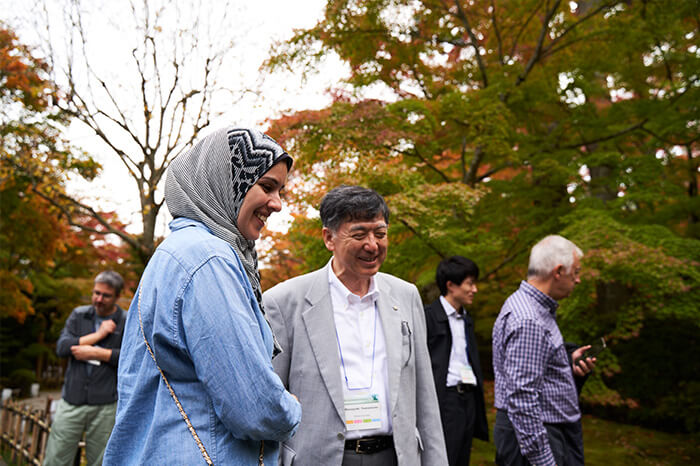Convention Case Studies
The Environmental Response VI Held in Sendai:
An International Event Born in Japan
For the sixth holding of the medical research conference "The Environmental Response", the organizers decided--as they have for three of the past five previous sessions--on Tohoku University, in Sendai, Miyagi Prefecture, as the venue (and all have been held in Japan). In part this decision was made because of the key person involved on the Japan side. Another reason for holding the November, 2023 event in Japan was, in short, all that the venue and Japan had to offer to the international group of researchers taking part.
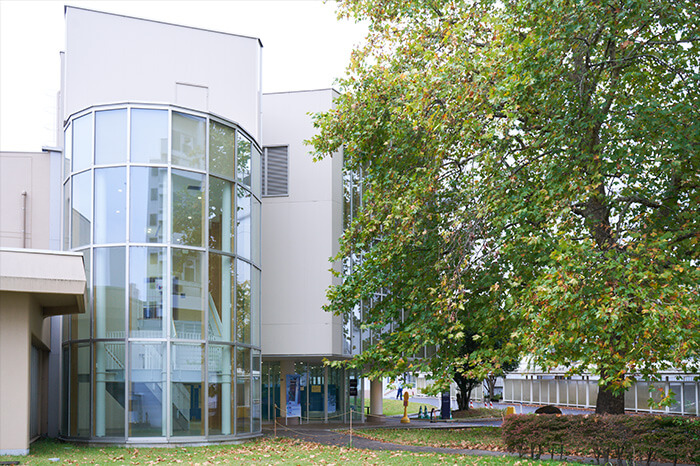
Conference Overview
| Event Name | The Environmental Response VI |
|---|---|
| Dates | November 3-5, 2023 |
| Location | Seiryo Auditorium, Tohoku University Seiryo Campus, Sendai |
| Attendance | 142 |
Exploring the effects of stress
For the layman, the first look around the venue could be a bit daunting. As is the case for any scientific symposium, there are a number of large posters affixed to the walls in the lobby--no doubt very interesting, but, without a little explanation, it might be hard to understand what the topic is all about.
But in fact, says Professor Thomas Kensler, the basic concept behind this international event is not so complex. "It's important stuff, but not so deep," he says. "Our health is defined by our ability to respond to stresses. These stresses can affect us at the cellular level--the way our cells work and talk to their neighboring cells. Stresses can affect us as an individual; stresses can affect us as a community, such as when disasters happen." Even factors such as climate change, air pollution, drought and stresses from our food will all have an impact on our health, he explains. "So we're interested--and especially Professor Yamamoto (the Chairman of the event, but much more than just that)--in stress responses, and how the body and cells respond to a wide variety of stresses that are produced within our bodies, and to which we are exposed to externally."
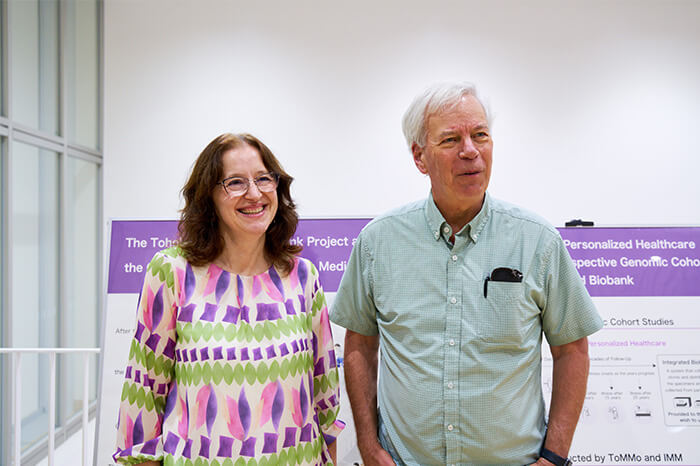
and Professor Thomas Kensler, Fred Hutchinson Cancer Center (right)
"As we age, or during chronic disease, our ability to respond to stresses is altered," adds Professor Albena Dinkova-Kostova, like Professor Kensler a member of the symposium's organizing committee. "We want to understand how we can overcome the deterioration that can happen during disease so we can slow down a particular disease condition, for example by identifying molecules that have drug-like properties. Perhaps we can then use them as medicines or food supplements, or make changes in our diet to achieve this balance that is altered in disease."
So this, the sixth holding of the event, brought together some 150 scientists and students from around the globe to this city in northeastern Japan for presentations, discussions and much more. In fact, the event has only been held in Japan, the first two in Tsukuba, the last three in Sendai. "There are several reasons for that," Professor Kensler says, "and the first is named Professor Masayuki Yamamoto. He is the guiding spirit in our field of research, and a lot of the work is going on in Japan--it's the Mecca of stress-response science. So this is the natural place where all scientists want to come."
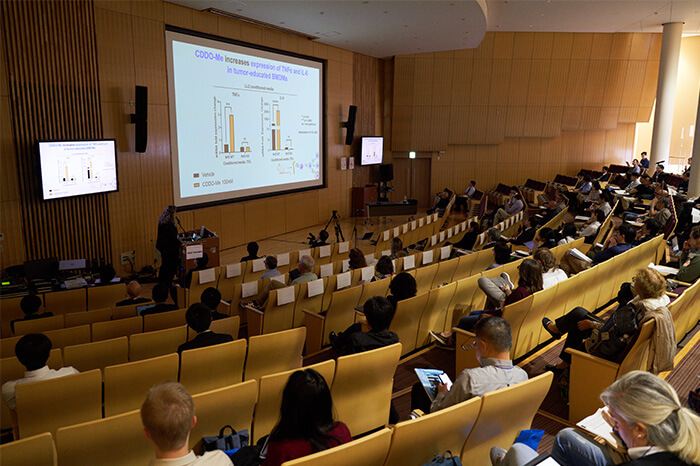
Only in Japan: good reasons to hold the event here
Professor Yamamoto is clearly the reason for the event being held here; he is a professor in the Medical Department of the University, and immediately makes any visitor very welcome at the event. "He's so enthusiastic about facilitating these meetings," Professor Kensler says.
"Sendai is a beautiful city with outstanding public transport and great hotel facilities," he says. "Japan is a phenomenal attraction for people from other continents and countries. Everybody can get here, even if it's a long trip, and it's pretty easy to move around in Japan even for somebody who doesn't speak or read the language. It's just a travel-friendly country. So there are lots of good reasons to come here."
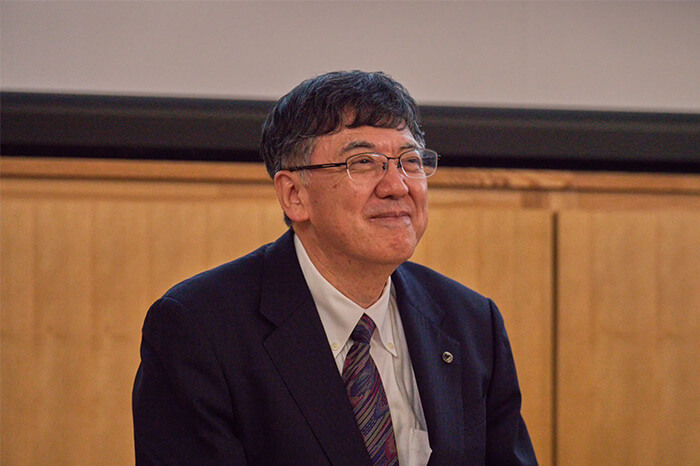
Professor Dinkova-Kostova, from the University of Dundee, Scotland, agrees. "It's also very accessible, especially for Asia and Australia, much more than going to the US. The fact that the country has such a beautifully organized public transport system makes a big difference. Here, you don't have to organize extra buses or taxis, and it's very safe."
Another uniquely Japanese factor leading to the success of the event comes from a Japanese person, and perhaps, Professor Kensler says, the Japanese approach to working together. "It's the personality of Professor Yamamoto that really makes this work," he says. "There are lots of specialty meetings like this, but in many of these people don't get along--they like to argue more than educate. But Professor Yamamoto's strong presence in the field right from the beginning has established an attitude of cooperation and collegiality. It's such a positive environment."
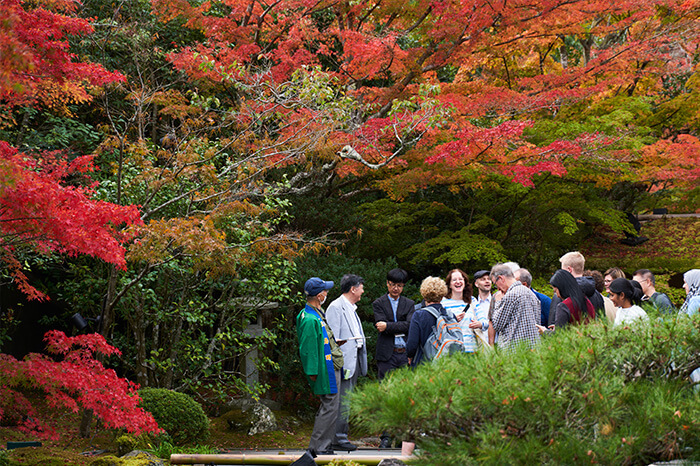
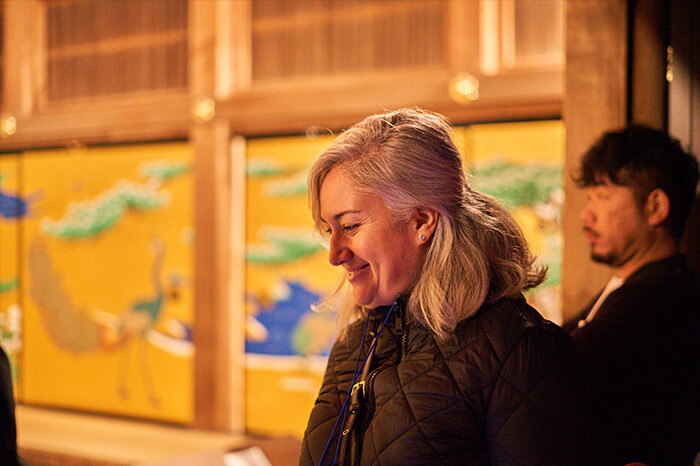
Excellent opportunities for collaboration
Professor Dinkova-Kostova adds that this environment of sharing extends beyond the formal events of the symposium. "It's things like at breakfast at the hotel, or after dinner with a group, the attendees start talking--this is how many collaborations begin," she says. "They make good connections, and as scientists that's very important for them to later support each other. It's not just one meeting, but people building long-term, strong relationships."
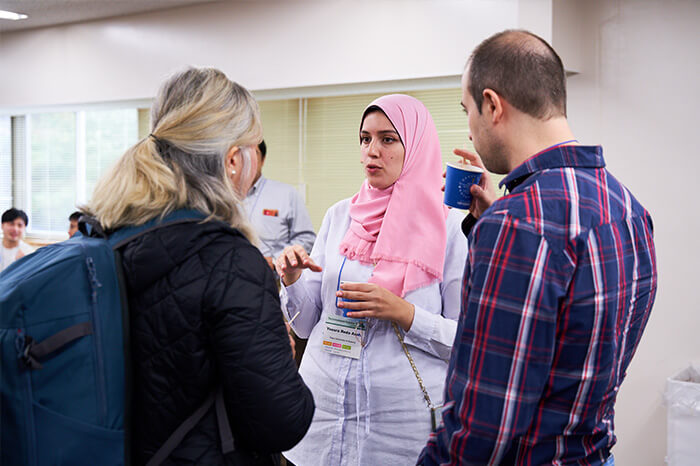
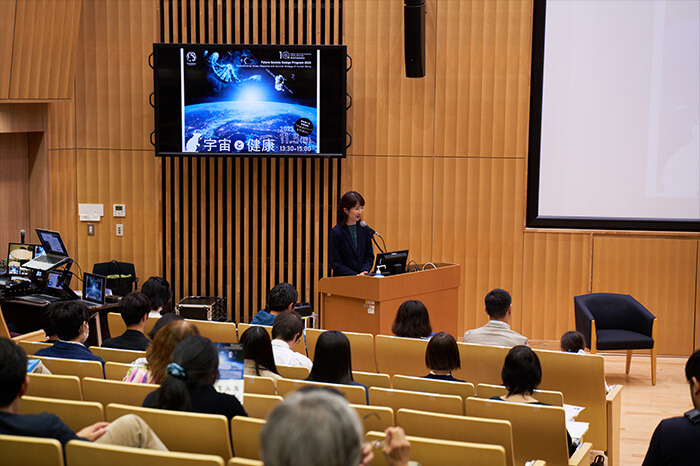
The Environmental Response VII was announced during this event, and both of the professors are already very excited about taking part in three years' time. "This is by far the most exciting meeting that I ever go to, for the event itself, and for the setting here in Sendai," Professor Kensler says. "It's genuine--we and the participants aren't just saying nice things out of politeness!" Professor Dinkova-Kostova adds, "No exceptions, it's all positive."
The Man in the Middle: Professor Masayuki Yamamoto
At the heart of this event is a man who is not only a leader in the environmental response field, but an active booster for Japan, Japanese culture, and for hosting international events in the country.
"This meeting brings together some of the top scientists in this field from around the world," Professor Yamamoto says, and adds proudly: "I think it's really important that we identify this as the top event of its kind. We did reach out for help when we decided to hold this in Japan, but in fact, this is really a handmade event." By handmade, he doesn't mean that it's rustic or amateurish, but that he and his team really make things happen by themselves. "The researchers and graduate students are actually doing the work of creating and preparing for the event. We do have part-time workers at the reception, but mostly it's the researchers and students. As they interact with the guests, of course they're nervous at first, but it's a great opportunity for international exchange, and for them to develop and grow."
